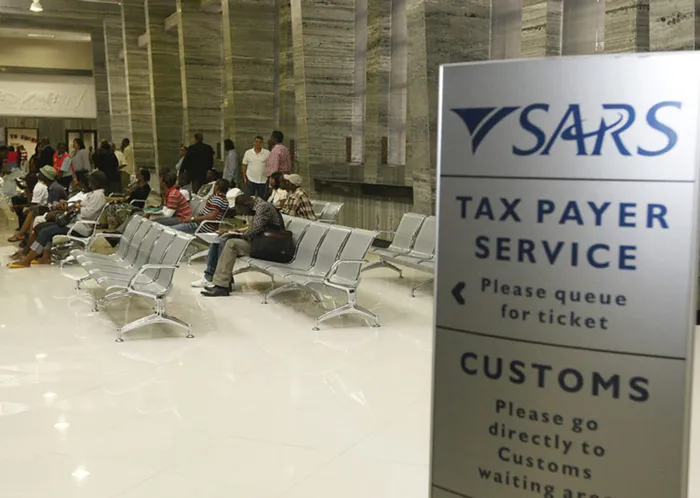
Discover how to transform your Sars tax refund from a mere reimbursement into a strategic financial opportunity. Learn effective strategies for debt reduction, savings, and long-term investment.
Image: File photo.
Each year, many South Africans eagerly anticipate their tax refund from the South African Revenue Service (Sars). For some, it’s a welcome boost to their finances – a chance to catch up, splurge, or simply breathe a little easier. But what exactly is a tax refund, and how can we use it more wisely?
A Sars tax refund is essentially a reimbursement from the government when you’ve paid more tax than you owe. This often arises when allowable deductions – such as travel expenses, medical aid contributions, retirement annuity payments, home office costs, or donations – are only captured and assessed once you file your tax return. While many see the refund as a financial windfall, it’s important to reframe it for what it truly is: money that was yours all along.
Reframing the question: ‘What will you do with your tax refund?’
The way we talk about tax refunds often reveals a disconnect. We tend to treat them as unexpected bonuses – leading to short-term, emotionally driven decisions. Instead of asking, ‘What will I do with this refund?’ perhaps the better question is, ‘What would I have done with this money if it had been in my hands all along?’
In financial terms, this ties directly into the concept of opportunity cost. Every rand overpaid to Sarsars throughout the year represents a missed opportunity – whether that’s investing in your future, reducing debt, or building financial resilience. In this light, a tax refund becomes more than just a return; it becomes an opportunity to make better financial choices going forward.
Making the most of your refund: Key areas to consider
To make the most of your Sars refund, it’s essential to have a clear plan. Here are a few impactful ways to put your money to better use:
1. Pay off high-interest debt
High-interest debt, such as credit cards, store accounts, and personal loans, can quickly erode your financial stability. Using your tax refund to pay these can save you hundreds, if not thousands, in interest over time.
In certain circumstances, a credit card can serve as a temporary emergency fund, particularly if it offers interest-free periods. However, this strategy is risky unless used with strict discipline. The key is to repay the full balance promptly; otherwise, you risk spiralling interest charges and potential damage to your credit record.
2. Build or strengthen your emergency fund
An emergency fund is your first line of defence against unexpected expenses – be it car repairs, medical bills, or short-term unemployment. Most financial experts recommend saving the equivalent of three to six months' worth of living expenses.
It’s worth noting that your emergency fund doesn’t have to be all doom and gloom – it can also include a ‘treat yourself’ buffer to avoid burnout. But make sure the funds are easily accessible; a 12-month fixed deposit won’t serve you well in a crisis.
3. Contribute to a tax-free savings account (TFSA)
If you haven't yet maxed out your R36,000R36,000 annual contribution limit (there is a R500,000 lifetime limit), a TFSA is an excellent place to allocate your refund. The beauty of a TFSA lies in its simplicity and tax efficiency: your interest, dividends, and capital gains are all completely tax-free.
However, this isn’t a short-term parking spot. To truly benefit, TFSA funds should ideally be earmarked for longer-term goals – whether that’s your child’s education, a future home, or long-term wealth building.
4. Top up your retirement annuity (RA)
RA contributions not only build long-term security but also offer tax benefits. You can deduct contributions up to 27.5% of your taxable income (up to a maximum of R350 000 per year) from your taxable income, which could result in even more refunds in future tax years.
For most people, retirement is inevitable. Contributing consistently – and early – can make a significant difference in your quality of life later on.
Don’t forget about VAT
When planning how to spend your refund, remember that South Africa’s 15% value-added tax (VAT) applies to most goods and services. This means that any consumption-based use of your refund will be immediately reduced by tax, money lost to the system again. Being VAT aware can help you prioritise spending that delivers real value, rather than simply eroding your refund on short-term pleasures.
The power of intentional planning
Your Sars refund should not be viewed in isolation. Instead, it should form part of a broader financial plan. By factoring your anticipated refund into your annual budget, you become more conscious of the true impact of your tax obligations and the shortfalls they may create.
It can also be helpful to reflect on what you could have done throughout the year if those excess tax payments had been in your account instead of Sars’. Could you have earned interest? Reduced debt earlier? Invested in an appreciating asset?
A tax refund is not free money; it’s your money being returned. And while it’s tempting to use it for instant gratification, the smarter route is to treat it as a strategic financial tool.
Whether it's paying off debt, boosting savings, investing for the future, or funding your retirement, your refund can unlock long-term value if used with purpose. Instead of reacting to your refund, plan for it, and then let it work for you.
* Msimango is a wealth manager at Alexforbes.
PERSONAL FINANCE